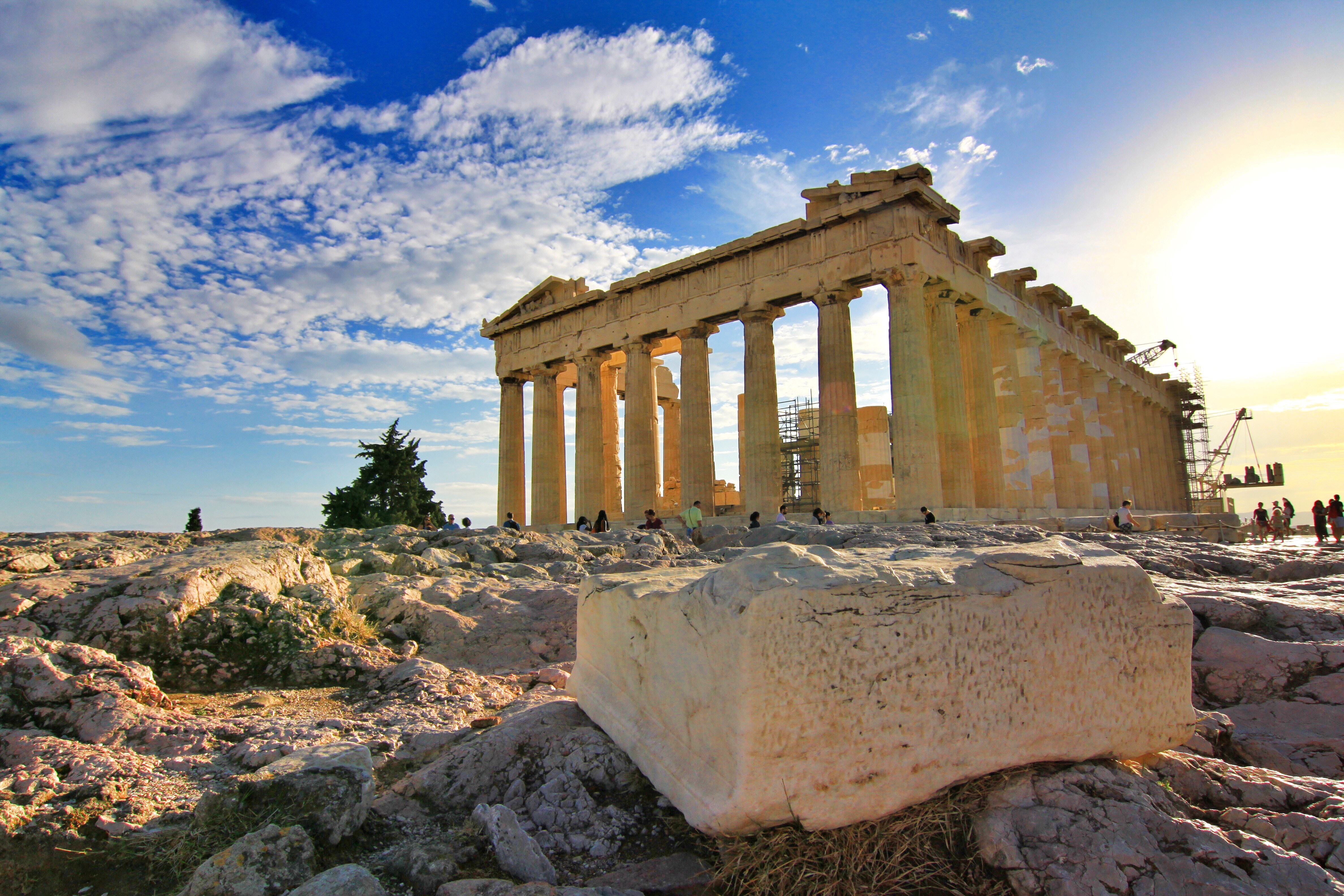Ed. note: This is the twenty-sixth post in a series looking at the three schools of philosophy for perspectives on navigating our modern world. Inspired by Emerson’s “The American Scholar,” we are exploring timeless wisdom which endures to inform our approaches to learning, relationships and leadership. Click here for all the posts in this series.
Having previously outlined Kierkegaard’s Fear and Trembling, we can now examine his theory a bit closer. This essay will look at how Kierkegaard separates and distinguishes faith and philosophy from one another. We will first look at what he says philosophy deals with, then look at what faith deals with, and conclude with his summary assertion in the epilogue that faith is the highest passion.
Philosophy and Faith
Kierkegaard makes an important distinction between philosophy and faith, and defines what the former can and cannot provide.
“Yet I by no means think that faith is therefore something inferior, on the contrary, that it is the highest, at the same time believing it dishonest of philosophy to offer something else instead, and to slight faith.”
“Philosophy cannot and should not give us an account of faith, but should understand itself and know just what it has indeed to offer, without taking anything away, least of all cheating people out of something by making them think it is nothing.”
He draws attention the fact that philosophy, as an exploration of truth and logic through the observable senses, deals with thought. It cannot dictate or speak to matters of faith. Faith, according to Kierkegaard’s paradox, is a higher passion, not an operation of logic or thought. Faith and philosophy, therefore, deal with two different levels of morality and ethics.
This corresponds with Kierkegaard’s commentary on the generation of his time, who, during the Enlightenment, were concerned with putting away faith, superstition, and any metaphysical considerations in favor of an empirical, scientific approach to life, ethics, and morality. However, as Kierkegaard points out, philosophy and faith aim at two different purposes. He speaks about philosophy robbing people of their faith in favor of a lesser, value. In this view, philosophy is useful for thinking through logical propositions or debating the morality of an action or beliefs, thus sharpening the mind, but it can not replace faith in the soul. Reason is not further than faith, then, but a step short of faith.

Philosophers, however, can tend to overstep in this regard, extending the findings of their empirical observations onto all of existence; essentially claiming that because their system works in the observable domain, it follows that this system must work across all domains. Faith, however, according to Kierkegaard, is at a higher level than ethics and observable phenomena. By definition, it would not be observable, and the paradox inherently would conflict with standard ethics.
In separating the two, Kierkegaard allows cognitive understanding to be separate – and below – faith, illustrating that they are not equal and opposite forces. Indeed, this is the paradox of Abraham: that logic would demand one response, while faith demands another.
Faith
Kierkegaard defends faith as the highest passion and realization of humanity.
It is essential to note that this paradox of faith is found as a result of following ethics. This doesn’t come as a result of shirking or leaping over the ethical, but rather in pairing commitment to the ethical with a faith in God. Abraham didn’t live outside of ethics, then come to a paradox of faith, and his example is not an excuse to disregard ethics in favor of faith. Rather, as a result of being ethical, and acting on faith in God, Abraham was brought to an encounter where he had to follow his understanding or his faith.

When Abraham is told by God to sacrifice his only son, the questions come in seemingly unending waves. “Why would a good god demand such a thing?” “Wouldn’t that be murder?” “Is that ethical?” “What is the right thing to do in such an unique situation?” These are questions of logic, understandably, but they progress into the realm of faith, which is where the knight of faith, Abraham, must operate.
“Let us go further. We let Isaac actually be sacrificed. Abraham had faith. His faith was not that he would receive Isaac sometime in the hereafter, but that he should find blessed happiness here in this world. God could give him a new Isaac, bring the sacrificial offer back to life. He believed on the strength of the absurd, for all human calculation had long since been suspended.” (emphasis mine)
“But Abraham believed and therefore was young; he had faith and faith for this life.”
Abraham’s faith on the absurd, as Kierkegaard distinguishes it, is what marks him as great, as a knight of faith, and sets him apart from the rest of us. The absurd is on the other side of human reason, where we must progress by following faith.
Faith anchors and animates our decisions regarding morality, society, life, death, dignity, wages, relationships, food; virtually every decision we make. Without it, everything exists in a state of flux, and people are devoid of deeper meaning in life.

The paradox is that the individual, who is subject to universal ethics, through faith, becomes higher than those universal ethics. Somehow, through following faith to navigate the ethical, it came time for Abraham to continue following faith, which violated the universal. If Abraham had relied on universal ethics, he would not acted in faith, and thereby, have made the wrong choice. He had to go further than the universal, and act on faith.
“For the movement of faith must be made continually on the strength of the absurd,…”
“…a paradox which gives Isaac back to Abraham, which no thought can grasp because faith begins precisely where thinking leaves off.”
One must go further than reason to arrive at faith.There is nothing “further than faith;” there is only acting on the “faith of the absurd.” By believing on the strength of the absurd, we grow in faith. Like Abraham, we can either believe God and act on the strength of the absurd, or be offended by His directives, refuse to progress in faith and act according to logical conclusions. Abraham didn’t trust in his ability to understand God’s command, he simply and courageously had faith in God’s command. He trusted that so long as he followed God’s instructions, nothing was lost. This faith in God beyond and above understanding – or on the absurd – is what makes Abraham a patriarch, and knight, of the faith.
This sentiment is echoed in these words from Francis Collison:
“Faith is reason plus revelation, and the revelation part requires one to think with the spirit as well as with the mind. You have to hear the music, not just read the notes on the page.”
Faith is one step farther, therefore, than reason, not a step short.

Faith as Highest Passion
Kierkegaard’s epilogue essentially summarizes the preceding text, restating that nothing is higher than faith. He begins with a story of spice merchants artificially inflating their prices by dumping some of their crop into the sea, which he mirrors with his generation’s preference for science and philosophy to matters of faith.
“However much one generation learns from another, it can never learn from its predecessor the genuinely human factor. In this respect every generation starts afresh, has no task other than that of any previous generation, and comes no further, provided the latter hasn’t shirked its task and deceived itself.”
Faith is therefore, the duty of each person, starting afresh with each generation. It is only by progressing through the ethical, through the infinite resignation, that one can finally become the knight of faith.
“Faith is the highest passion in a human being. Many in every generation may not come that far, but none comes further.”
As with Abraham, the greatest act anyone could perform is to walk in faith, suspending the ethical, trusting God’s goodness. Many won’t realize this level of faith, but certainly, none can go further than trust in God.





